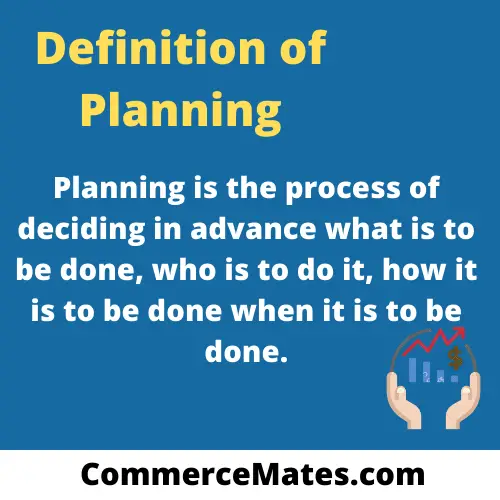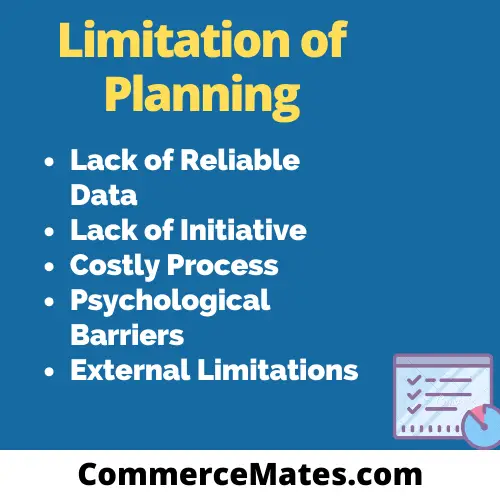Contents
Definition of Planning
According to Killen, ” Planning is the process of deciding in advance what is to be done, who is to do it, how it is to be done when it is to be done”.
According to Koontz, O’Donnell and Weihrich, ” Planning is an intellectually demanding process ; it requires the conscious determination of courses of action and basing of decisions on purpose, knowledge and considered estimates.”
Importance of Planning in Leadership
Focuses Attention on Objectives
Since all the work is directed towards achieving enterprise objectives, but planning forces people to continually address their major efforts to the most important work, rather than the lest important ones. planning classified the works and helps the organisation to achieve goals.
Reduce Uncertainty
Through planning, people from different areas can be brought together to contribute to the organisational objectives . Involvement of people in planning process enhances the behavioural climate. So, planning helps in reducing uncertainties of future because it involves anticipation of future events.
Encourage Innovation and Creativity
Planning is basically deciding function of management. it helps in innovative and creative thinking to the team members. Because it assume the future uncertainties and try to solve in present. So, it helps to create a forward looking attitude among the team members.
Improves Motivation Level
The process of planning involves every team members and their ideas which improves motivation. it also improves the motivation of workers also because they know clearly what is expected of them. Moreover, planning serves as a good training device for future managers.
Planning Provides Direction
Planning involves logical thinking as well as rational decision making. It involves decision as to:
1. What is to be done?
2. How it is to be done?
3. When it is to be done?
4. By whom it is to be done?
Planning helps in uncovering and recognizing opportunities at the time they exist. Without planning, organisation functions like a rudderless ship.



